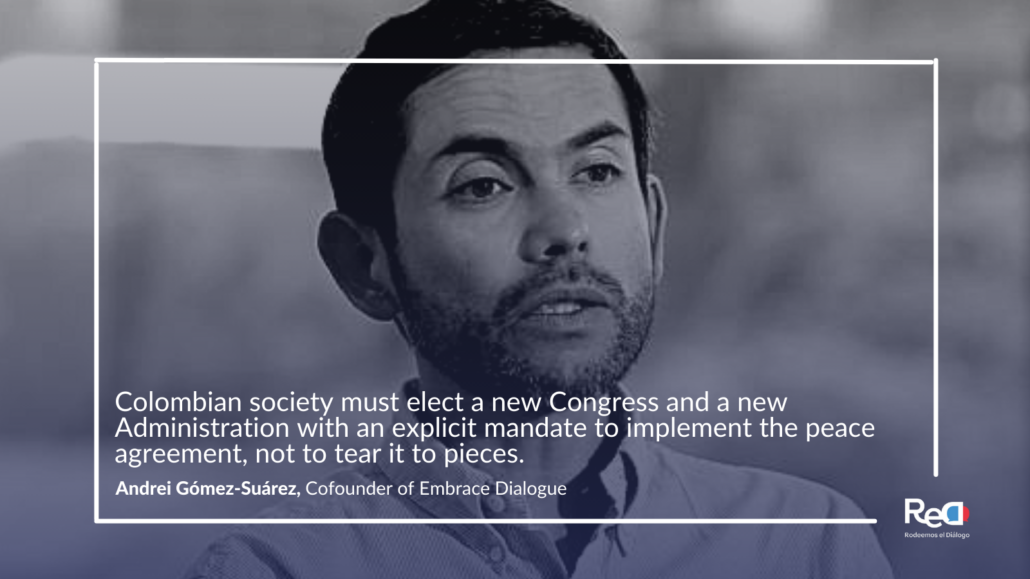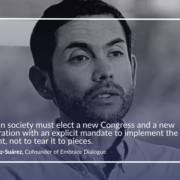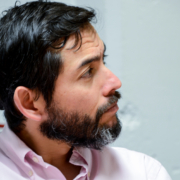Is Colombia’s Peace at Risk? Andrei Gómez-Suárez analyses the Constitutional Court’s ruling ordering the Duque administration to protect former FARC combatants, and suggests that the hope for peace is still alive in this crucial electoral year for Colombians.
In January 2022, 13 massacres were carried out in Colombia, and 13 social leaders were assassinated by unknown armed groups, according to Colombian NGO Indepaz. This serious human rights crisis confirms the concerns of UN Secretary General Antonio Guterres. In his last report to the UN Security Council, published on 20 January, he stated that if the systematic assassination of former FARC members and social leaders continues, the possibilities for peace in Colombia are at risk.
On 28 January, the members of the UN Security Council published a press statement reiterating “their concern regarding the persistent threats, attacks and killings targeting former FARC-EP members who laid down their arms as participants in the peace process, as well as community and social leaders, including women and those from indigenous and Afro-Colombian communities.”
After years of advocacy by former FARC members, social leaders, Colombian human rights NGOs and the international community, Colombia’s Constitutional Court took a significant decision to protect former FARC members. On 27 January, the Court declared that the Colombian state had violated the Colombian Constitution due to “the poor implementation of the security guarantees for peace signatories, integral to the 2016 peace agreement which is now part of the Colombian legal framework.” The Court ordered the government “to adopt all necessary measures to fulfil, in a comprehensive, coordinated and articulated manner, the security guarantees of former FARC members.” This means the government has to activate the National Commission of Security Guarantees and the High Level Body of the Comprehensive Security System for the Exercise of Politics, just as Rodeemos el Diálogo insisted to the British Parliament on 30 April 2019.
The Court decided to create a special Follow-up Chamber to ensure the government executes the order in the next three months. Yet President Iván Duque and the presidential advisor for Stabilisation and Consolidation, Emilio Archila, continue pretending to show the “Peace with Legality” policy as an effective replacement for the peace agreement. In a press statement criticising the ruling of the Constitutional Court, Archila claimed that “the Court does not recognise the efforts made by the government to amend the pitfalls of the peace agreement.”
The international community is aware of the challenges ahead, and therefore, after the Court’s ruling, the guarantor countries of the peace process (Cuba and Norway) tweeted a short communiqué requesting the Colombian government take concrete actions to protect former FARC members.
The demands of former FARC members, the lobby of national and international NGOs, the support of the international community to the peace process, the Court’s ruling and the response of the Duque administration show that, as Rodeemos el Diálogo’s statement puts it, “peace is political.”
This means that:
- Peace is a process in which the confrontation of different groups and opinions is unavoidable.
- Peace requires the intersection of the will of different sectors of society and the political will of the government.
- Although peace is not restricted to electoral politics, it cannot exclude politics.
On 29 December 2021, I wrote in La Silla Vacía that 2022 could offer a “a light of hope for peace in Colombia.” The ruling of the Constitutional Court and the statement of the UN Security Council are positive developments in this direction. However, the killings of social leaders and the massacres show that a profound political change is needed to proctect peacebuilding in Colombia. This year, Colombian society must elect a new Congress and a new Administration with an explicit mandate to implement the peace agreement, not to tear it to pieces.






Leave a Reply
Want to join the discussion?Feel free to contribute!